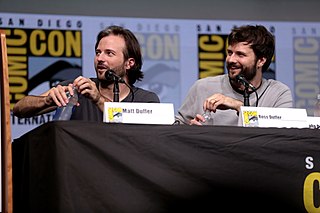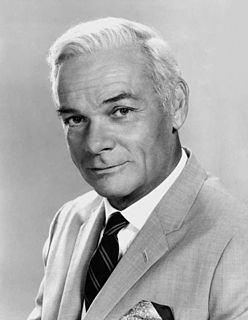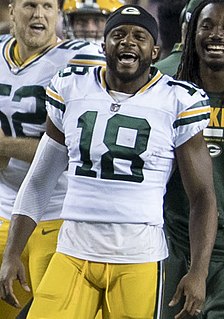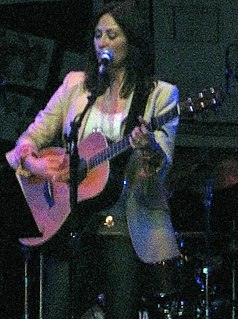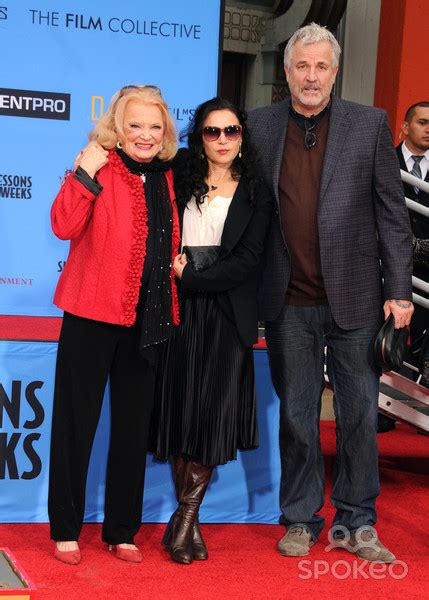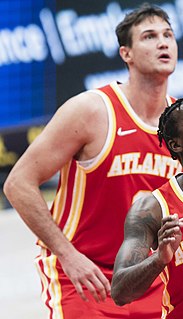A Quote by Ross Duffer
We were so focused on the production aspect of it that it wasn't until later in our college experience that we realized we needed to focus on writing. And once we did, that sort of became our way into Hollywood.
Related Quotes
When I went to college, I wanted to major in kinesiology. That's what I wanted to do, but just the way our schedule matched up - our football schedule and the college of kinesiology - all the classes were in the morning and football practice was in the morning. So there was no way for me to take all the classes that I needed to. Once I got into those core classes, it would have been hard for me to do it.
I got to college in '99, and I went to study literature and writing, and so within a couple years we had Bush elected, 9/11, we were at war, so I was sort of having my political and spiritual awakening at the same time I was becoming an adult, and that's a lot of stuff at once. I became very focused on the state of the world, and I started studying that stuff more, and I just had a real identity crisis. I couldn't even really just study literature.
I ultimately realized we had gotten together for the music. It was such a huge thing in our lives. We were at the same age, same place in our careers, and we had great fun. But when I became a mother and was at home, I realized that in reality we had very little else in common. I wasn't happy, wasn't getting what I needed. It's tough to realize that. But while a big change can be painful, it also was for the best. I'm happier now than I've ever been.
Back in the Bruce Lee era, and in my era, Kung-Fu stirred up a kind of frenzy, and many people were learning martial arts from us. But about a decade ago, Hollywood began bringing in a number of our action choreographers, including two from my own stunt crew, where they became martial arts directors. Now, a decade later, Hollywood has learned it all, so when you look at the action films they're making now, they all use our action, our martial arts, and then add to that their own technology which is ten times better than ours, and it has to leave us dumbfounded: how did they film that?
There is a sequence of events in our lives and so there's a temporal aspect to our experience that brings by itself, sense into the story. In other words, you were not walking before you were born and you were not doing X and Y before you did something else first. So there's a sequencing of events that imposes a certain structure to the story.
I realized that most white Americans knew very little about our history and our struggle, and were having difficulty understanding the basis for our agitation and our resistance and our complaints. I also discovered that while black Americans had a sense of the beauty and tragedy of the journey from the time of slavery until now, we were not rooted in the specifics. I thought one way to familiarize people with that history would be through the voices of the great folk artists.
Anything was better than going to work. All those early tours before we made any money were more like vacations. I don't think it was until 2001 that we pulled our heads out of the sand and were like, "What are we doing?" I don't think Chris realized he was in a band until 2001. He all of a sudden woke up one day and realized he was in a band. He thought he was just recording my solo project. Three albums later, we're in Baltimore trying to figure out what to do with ourselves.
It was 1999, and we were building a way for college kids to create online profiles for the purpose of sharing... with employers. Oops. I vividly remember the moment I realized my company was going to fail. My co-founder and I were at our wits' end. By 2001, the dot-com bubble had burst, and we had spent all our money.
After eight years of Barack Obama and one crazy election, we almost got it wrong. We came this close. But then we remembered who we were. Then we remembered what America was. Then we confronted our challenges and embraced our opportunities. And because we did what needed to be done in 2016, our children became the freest and most prosperous Americans that ever lived.
On 9-11, we discovered that we cannot escape from the world. To me personally, this was a life-changing experience, and I realized, as did all Americans, in a way that is impossible to describe, that we were not protected by the two oceans. It was necessary to eliminate threats before they showed up on our doorstep. I agree that we should not be getting caught up in far away wars. But I believe Iraq was central to our war on terrorism.
